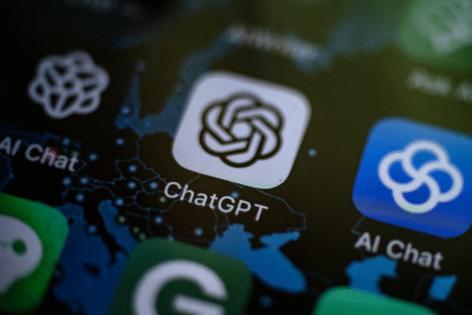Why artificial intelligence didn't disrupt the election
Published in Political News
On Wednesday afternoon, ChatGPT still couldn't tell me who the 47th president was.
"I might not have the latest updates," the artificial intelligence tool said, directing me instead to news outlets or my local election authority.
Further attempts to receive a drawing of Donald Trump with Elon Musk deporting swaths of migrants was met with resistance: "I'll keep it respectful and neutral," the OpenAI system said, before offering a stronger rebuke, telling me that generating such an image "doesn't align with our content policy."
A bit more probing showed that ChatGPT was unwilling to generate any images of Trump — or Kamala Harris, for that matter.
"The content policy restricts the generation of images featuring real public figures in certain contexts to avoid misrepresentation or the potential for harmful implications," the chatbot explained.
Earlier this year, experts warned the Pittsburgh Post-Gazette and other outlets that artificial intelligence would wreak havoc on the 2024 election by manipulating the truth and confusing voters.
So far, it appears some of that concern was overblown.
A New Hampshire robocall in which AI was used to impersonate President Joe Biden that incited early fears was met with swift punishment, while other high-profile examples of misinformation, such as an AI-generated image of Taylor Swift endorsing Mr. Trump, were quickly debunked.
Some of that comes down to people being able to easily identify and correct false information. Campaigns were also reluctant to adopt new AI tools, the New York Times reported in August.
The platforms behind the most popular AI chatbots may also deserve some credit.
Google, OpenAI and Meta all took steps to limit what users could ask in the buildup to the election. Gemini, for instance, wouldn't tell me who to vote for.
"I can't help with responses on elections and political figures right now," the Google software told me a few weeks before election day. "I'm trained to be as accurate as possible but I can make mistakes sometimes."
I was especially keen to try Gemini because of Google's decision back in March to limit what political answers the chatbot would provide. Representatives talked about that choice during last month's AI Horizons summit in Pittsburgh, acknowledging that the technology is still largely experimental.
That novelty also means that errors are sometimes easier to spot. Pennsylvania actually trained employees in the state department to spot generative AI this cycle.
"Under the direction of Secretary Al Schmidt, the Department has been steadfast in its continuous efforts to promote and share accurate information, both organically and in response to emerging falsehoods," it told the Post-Gazette by email, noting that there haven't been any specific instances of AI interference to flag.
On election day, Schmidt joined Gov. Josh Shapiro at a press conference touting the state's free and fair election. The only examples of misinformation they named were a handful of meritless bomb threats at polling centers.
Still, experts in the AI election space say there could be examples of manipulation that went undetected.
"We may not be able to see the hand of AI when it is well done," said S. Shyam Sundar, director of the Center for Socially Responsible Artificial Intelligence at Pennsylvania State University.
"The Taylor Swift endorsement of Trump and the Biden robocalls are examples of poorly executed uses of AI. Who knows, some of the successful conspiracy theories that partisans are buying into and basing their votes on could have been generated by AI and/or created with the help of AI. When done well, AI can far surpass human abilities to fake the truth."
Meanwhile, political and economic pressure have made it harder to track misinformation, said Kathleen Carley, director of the Center for Computational Analysis of Social and Organizational Systems at Carnegie Mellon University.
"The cost of collecting data from social media has gone through the roof," she said. When she asked students who was interested in tracking this year's election, not a single student raised their hand.
"They're afraid of harming their careers," she said.
_____
(c)2024 the Pittsburgh Post-Gazette. Visit the Pittsburgh Post-Gazette at www.post-gazette.com. Distributed by Tribune Content Agency, LLC.




























































Comments